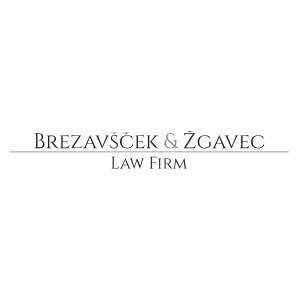Best Climate Change Law Lawyers in Ljubljana
Share your needs with us, get contacted by law firms.
Free. Takes 2 min.
List of the best lawyers in Ljubljana, Slovenia
About Climate Change Law in Ljubljana, Slovenia
Climate Change Law in Ljubljana, Slovenia refers to the legal frameworks and regulations governing actions and responsibilities related to climate change. This area of law includes measures that address the reduction of greenhouse gas emissions, energy transition, adaptation to climate impacts, environmental protection, and compliance with both national and European Union directives. Ljubljana, as the capital city, often leads the way in implementing national policies on sustainability, environmental planning, and green initiatives. The legal landscape is shaped by Slovenia’s commitments under international agreements like the Paris Agreement, as well as European Union regulations that impact local law and policymaking.
Why You May Need a Lawyer
There are a range of situations where legal advice in Climate Change Law may be necessary. You might require assistance if you are:
- Launching a development or building project that requires environmental impact assessments.
- Facing compliance checks with emissions regulations or environmental permits.
- Challenging or appealing government decisions related to climate policy or urban planning.
- Involved in disputes over pollution, waste management, or natural resource use.
- Seeking funding or approval for renewable energy projects and need guidance on legal requirements.
- Representing an organization or non-profit engaged in climate action and advocacy.
- Negotiating or drafting contracts involving climate-related obligations or sustainability clauses.
- A business navigating new carbon reporting mandates or corporate sustainability rules.
Given the complexity and evolving nature of these laws, a lawyer experienced in this field can help you understand your rights and responsibilities and advocate for your interests.
Local Laws Overview
Climate Change Law in Ljubljana is grounded in Slovenian national legislation as well as European Union policies, which are binding on all member states. Key aspects of the local legal environment include:
- Environmental Protection Act: This is the core framework setting out environmental management, pollution prevention, and climate adaptation strategies in Slovenia.
- Decree on the Management of Ambient Air Quality: Regulates air emissions and sets standards for industries and vehicles, directly impacting urban air quality in Ljubljana.
- Energy Act and Renewable Energy Decrees: Encourage the transition to sustainable energy, providing incentives and rules for renewable energy production, grid access, and consumer rights.
- Spatial Planning and Building Laws: Mandate climate resilience and environmental consideration in the city’s development plans and construction permits.
- Circular Economy Initiatives: Promote waste reduction and sustainable resource use, with enforcement mechanisms for non-compliance.
- EU Green Deal Implementation: Sets out ambitious goals for carbon neutrality, energy efficiency upgrades, and green investments, influencing city regulations and opportunities.
This legal environment is reinforced by local government policies aiming to make Ljubljana a green, climate-resilient city, including incentives for sustainable transport, protection of green spaces, and citizen participation in climate initiatives.
Frequently Asked Questions
What is Climate Change Law, and how does it apply in Ljubljana?
Climate Change Law covers rules and commitments to reduce the impact of human activity on the climate. In Ljubljana, these laws are applied through a combination of Slovenian national rules, EU regulations, and specific city policies focused on sustainability.
Which government bodies enforce Climate Change Law in Ljubljana?
Key bodies include the Ministry of the Environment, Climate and Energy, the Slovenian Environment Agency, and the Ljubljana Municipality’s Department for Environmental Protection. EU bodies also monitor compliance with European policies.
Do businesses need to comply with specific climate-related regulations?
Yes, many businesses must adhere to standards for emissions, energy use, waste management, and reporting. Failure to comply can result in sanctions, fines, or even suspension of operations.
How can individuals get involved in climate law processes in Ljubljana?
Individuals can participate by commenting on draft laws, joining public consultations, or supporting organizations involved in legal advocacy for climate issues.
Are there incentives for renewable energy projects in Ljubljana?
Yes, both national and local authorities offer incentives such as grants, subsidies, and simplified permitting for qualifying renewable energy or energy efficiency projects.
What is an Environmental Impact Assessment (EIA), and when is it required?
An EIA is a legal requirement for certain projects that may affect the environment. It assesses potential impacts and proposes mitigation measures. Building projects, infrastructural developments, and industrial installations often need an EIA before approval.
Can I challenge a government decision on environmental grounds?
Yes, Slovenian law and EU directives allow individuals, associations, and affected parties to appeal administrative decisions related to environmental permitting and climate policies.
What legal actions can be taken if environmental laws are violated?
Affected parties can file complaints with relevant authorities, seek administrative or judicial review, or pursue damages for harm caused. Environmental NGOs also have standing to represent public interest cases.
How does European Union law affect climate regulation in Ljubljana?
EU law sets mandatory targets and minimum standards for member states, including emission caps and policies on renewable energy. Slovenia must implement these requirements, shaping local regulations that apply in Ljubljana.
Where can I seek legal help for climate change matters in Ljubljana?
You can consult specialized environmental law firms, legal aid societies, or reach out to the Bar Association of Slovenia for referrals to qualified lawyers experienced in climate change issues.
Additional Resources
For more information or support regarding Climate Change Law in Ljubljana, consider the following resources:
- Ministry of the Environment, Climate and Energy - Offers information on national policies and current legislation.
- Slovenian Environment Agency - Provides data on emissions, air quality, water, and climate change impacts.
- City of Ljubljana Environmental Protection Department - Responsible for local implementation of climate policies and public engagement.
- Environmental NGOs like Umanotera and Focus Association for Sustainable Development - Engage in advocacy, legal advice, and public awareness initiatives.
- Bar Association of Slovenia - Directory of lawyers, including those specializing in environmental and climate change law.
Next Steps
If you believe you need legal advice or representation in matters related to Climate Change Law in Ljubljana, consider the following steps:
- Clearly identify the issue or legal question you are facing, and gather any relevant documentation (permits, correspondence, impact assessments).
- Contact a lawyer or legal advisor with experience in climate change, environmental, or administrative law. The Bar Association of Slovenia can help you find specialists in this field.
- If your concern involves a public project or government decision, act promptly, as there can be strict deadlines for appeals or objections.
- Prepare to explain your objectives and desired outcomes, whether you seek compliance advice, wish to file a complaint, or are planning a new initiative.
- Utilize available resources and support organizations for additional guidance and to understand your rights under both local and EU law.
Legal guidance at an early stage can help you navigate regulations, avoid costly mistakes, and ensure your project or advocacy efforts have the best chance of success.
Lawzana helps you find the best lawyers and law firms in Ljubljana through a curated and pre-screened list of qualified legal professionals. Our platform offers rankings and detailed profiles of attorneys and law firms, allowing you to compare based on practice areas, including Climate Change Law, experience, and client feedback.
Each profile includes a description of the firm's areas of practice, client reviews, team members and partners, year of establishment, spoken languages, office locations, contact information, social media presence, and any published articles or resources. Most firms on our platform speak English and are experienced in both local and international legal matters.
Get a quote from top-rated law firms in Ljubljana, Slovenia — quickly, securely, and without unnecessary hassle.
Disclaimer:
The information provided on this page is for general informational purposes only and does not constitute legal advice. While we strive to ensure the accuracy and relevance of the content, legal information may change over time, and interpretations of the law can vary. You should always consult with a qualified legal professional for advice specific to your situation.
We disclaim all liability for actions taken or not taken based on the content of this page. If you believe any information is incorrect or outdated, please contact us, and we will review and update it where appropriate.

















